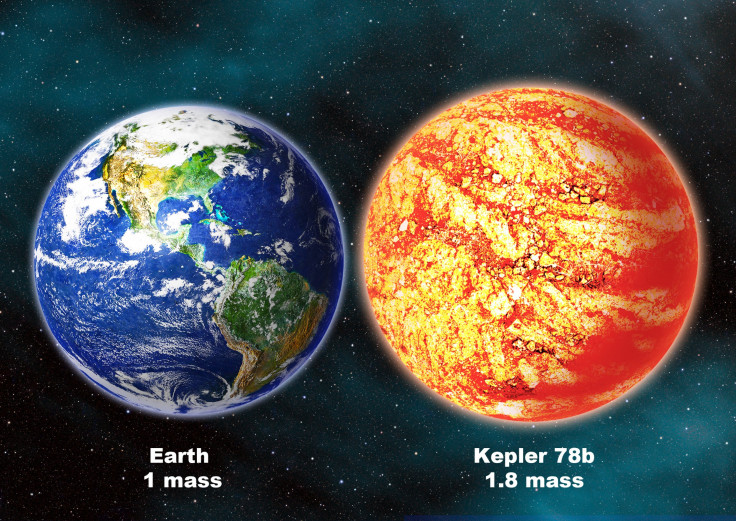Kepler-78b Is A Planet That Shouldn’t Exist, New Mysteries Surround This Doomed Earthlike Planet
Kepler-78b is an exciting planet for astronomers to explore as it is the first found to have an Earth-like size and density, but the allure is not about searching for life on this alien planet. For researchers, the mystery lies in its very existence, as Kepler 78b would have had to form inside its host star.

Researchers from the Harvard Smithsonian Center for Astrophysics, CfA, are baffled by this planet. Earlier, Kepler-78b was discovered to have one of the tightest and shortest orbits around its host star: One year on this planet is just 8 1/2 hours, and is just 1 million miles away from its host star. According to the previous research, conducted by astronomers from the Massachusetts Institute of Technology, Kepler-78b was described as a “lava world,” with a surface temperature of up to 3,000 degrees Kelvin (4,940 degrees Fahrenheit). Kepler-78b is located 400 light-years from Earth in the Cygnus constellation.

While Kepler-78b was already an unusual planet when it was first discovered, the new research from CfA only adds to the mystery of this exoplanet. According to the researchers, Kepler-78b is too close to its star to have formed there and it is unlikely that the planet moved into that position. David Latham, an astronomer from CfA, said Kepler-78b’s origins are unknown is fate is pretty much sealed. Latham said in a statement, “Kepler-78b is going to end up in the star very soon, astronomically speaking.”
Based on the research, the host star was larger when the planetary system was formed, which means Kepler-78b would have formed, impossibly, inside the star. The star’s gravitational pull is also unlikely to have dragged the planet to it as researchers believe another star would have pried Kepler-78b away.

Kepler-78b is doomed and researchers believe it will be swallowed by its host star in 3 billion years. The planet is among several newly discovered exoplanets that orbit their host star in under 12 hours.
© Copyright IBTimes 2025. All rights reserved.






















